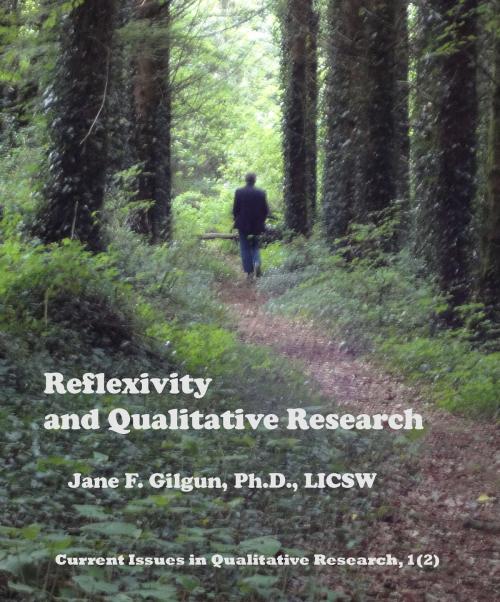| Author: | Jane Gilgun | ISBN: | 9781458094131 |
| Publisher: | Jane Gilgun | Publication: | January 31, 2011 |
| Imprint: | Smashwords Edition | Language: | English |
| Author: | Jane Gilgun |
| ISBN: | 9781458094131 |
| Publisher: | Jane Gilgun |
| Publication: | January 31, 2011 |
| Imprint: | Smashwords Edition |
| Language: | English |
Researchers' own experiences affect every aspect of the research they do, from conceptualization of the issues to be researched, relationships with research participants, to interpretation of findings, to writing up results, to dissemination. This article discusses reflexivity and provides examples of what it is.
Reflexivity is important topic for qualitative researchers to consider and to experiment with. For research to be credible, researchers must be reflexive no matter which methods and perspectives they use. That researchers influence research processes and research processes influence researchers are givens in theoretical physics and other hard sciences, as well as in the social sciences. These assumptions are also givens or basic methodological principles, in most forms of qualitative research. Finally, awareness of the importance of reflexivity is part of the human sciences, whose traditions extend back to the origins of social science research in the middle of the nineteenth century. (
Researchers' own experiences affect every aspect of the research they do, from conceptualization of the issues to be researched, relationships with research participants, to interpretation of findings, to writing up results, to dissemination. This article discusses reflexivity and provides examples of what it is.
Reflexivity is important topic for qualitative researchers to consider and to experiment with. For research to be credible, researchers must be reflexive no matter which methods and perspectives they use. That researchers influence research processes and research processes influence researchers are givens in theoretical physics and other hard sciences, as well as in the social sciences. These assumptions are also givens or basic methodological principles, in most forms of qualitative research. Finally, awareness of the importance of reflexivity is part of the human sciences, whose traditions extend back to the origins of social science research in the middle of the nineteenth century. (















